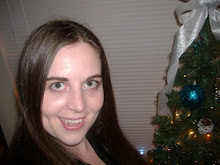I loved reading, “What We Talk about When We Talk about Love and Happy Endings.” How appropriate this week’s readings were in light of V-day. I found it fascinating (as I do every year) how everyone becomes so caught up in love and its meanings this time of year. Everywhere I start seeing references to 1 Corinthians 13: “Love is patient, love is kind….”; love songs; and of course, poetry. Do we love on the other 365 days of the year?
Coincidentally, when we tried to sort the short stories last week in class, our group briefly discussed the categories of love. It had been years since I had thought about the philosophy of love (i.e. eros, agape, philia). So, recalling these actually required some research for me to refresh my memory. Here’s a good link I found: http://plato.stanford.edu/entries/love/
I must have studied these a million times in some of my undergrad psychology, sociology, and other courses. In Women’s Studies and Social Work we certainly discussed love in relation to domestic violence.
In “What We Talk about When We Talk about Love” Mel argues at length his opinion on love. He insists that what Terri and Ed had was not real love. And, I would totally agree with him (having witnessed some very awful, toxic relationships among clients and friends). However, I find it interesting how patronizing his tone is throughout this story, toward all of the characters, but especially Terri. “My God, don’t be silly. That’s not love, and you know it.” Nick credits his tone to Mel’s status in his career: “Mel McGinnis is a cardiologist, and sometimes that gives him the right.”
Laura’s view on love seems to be that it depends on the individual(s) involved. She even states she can’t judge Ed and Terri’s relationship because she never knew him or saw them together. Laura and Nick will only focus on what love means in the context of their own relationship.
Also, Mel makes another point about the inconsistency of love. Individuals can love more than one person in their lifetime. He relates how he loved his ex-wife at one time. But, now he hates her so bad he would be happy if she were dead! This example stands in stark contrast to his definition of love. If “real love is nothing less than spiritual love” (agape) as he asserts in the beginning of the story, did he ever really love his first wife? Does he love Terri in this sense, or does their love fall into one of the other categories (eros, philia)?
Atwood’s “Happy Endings” presents a very pessimistic view of love and relationships with her many scenarios. “You'll still end up with A, though in between you may get a lustful brawling saga of passionate involvement, a chronicle of our times, sort of. You'll have to face it, the endings are the same however you slice it. Don't be deluded by any other endings, they're all fake, either deliberately fake, with malicious intent to deceive, or just motivated by excessive optimism if not by downright sentimentality. The only authentic ending is the one provided here: John and Mary die. John and Mary die. John and Mary die. “
So, what is love? It’s one of the most complicated human emotions, one that philosophers, writers, musicians, and others have tried to define for centuries. I’m not sure love is something that can be easily defined. I may be more with Nick and Laura on this one…
Subscribe to:
Post Comments (Atom)

No comments:
Post a Comment